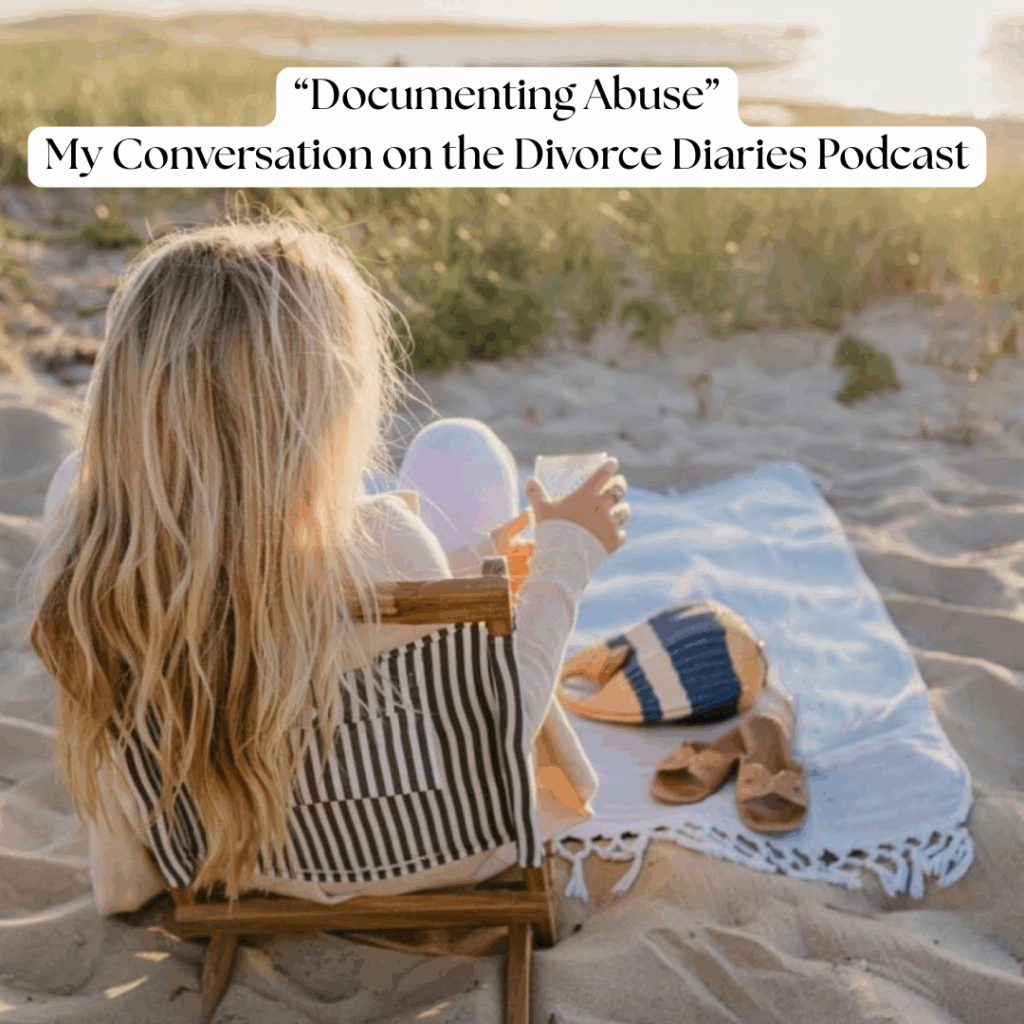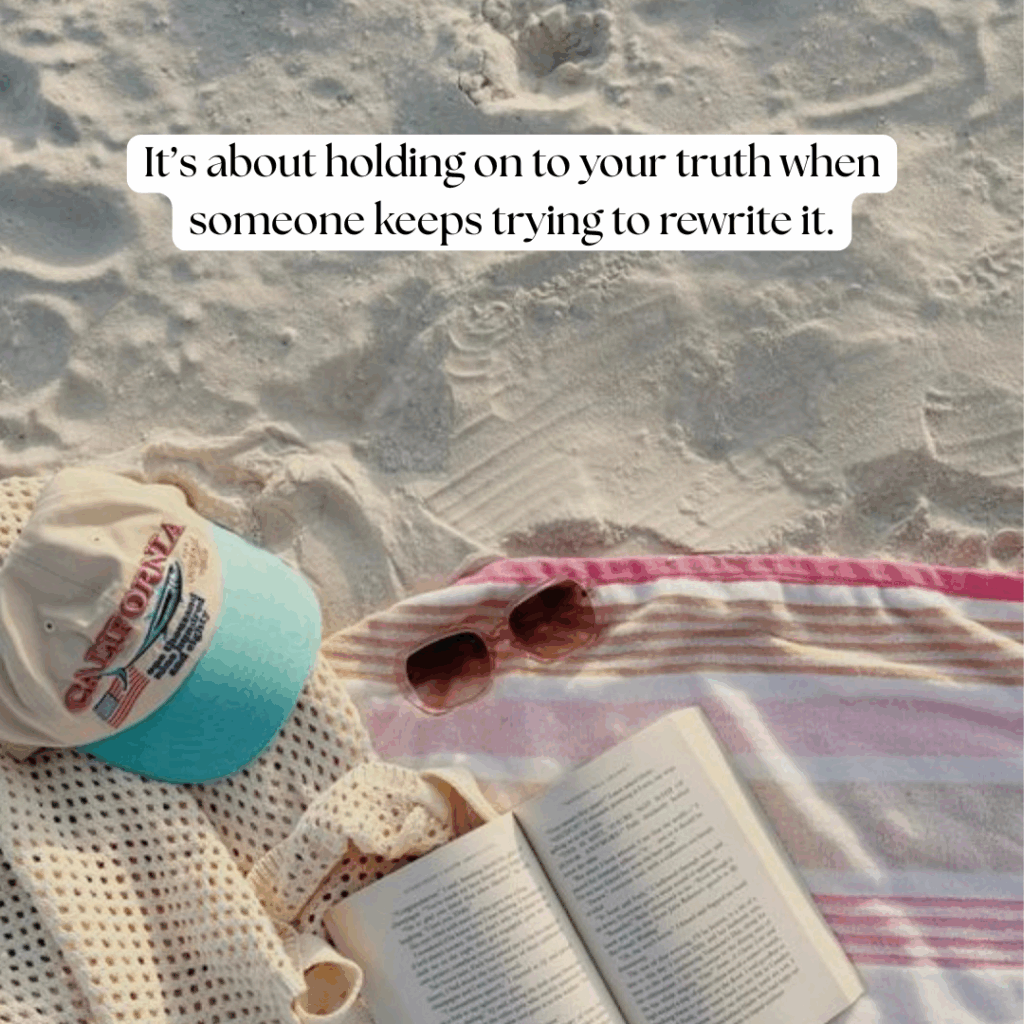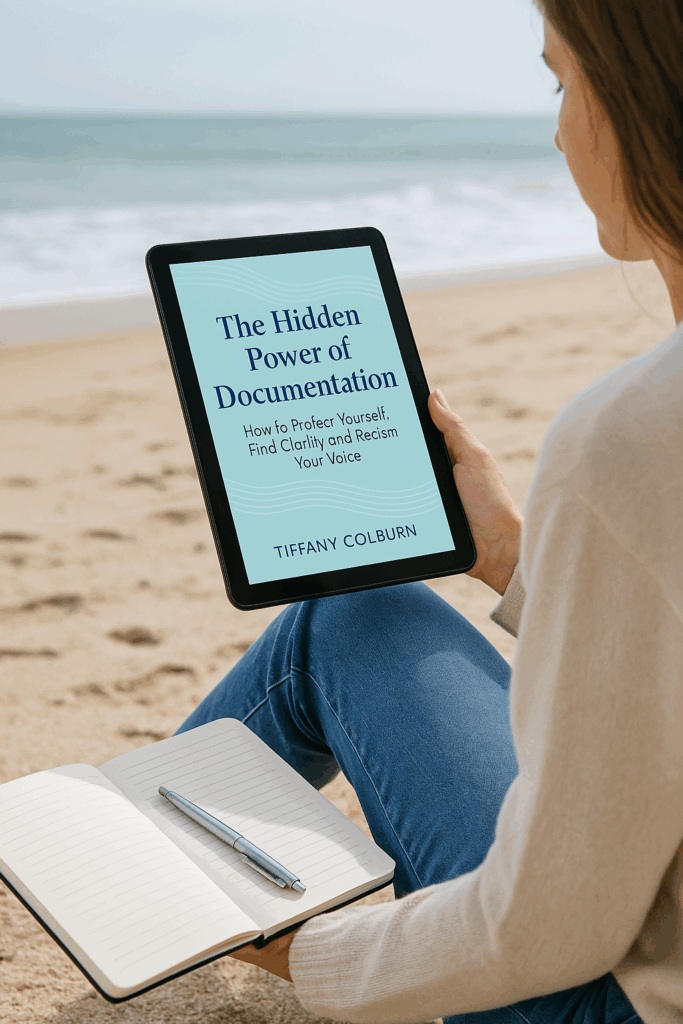Documenting abuse is one of the most important things I did during and after my relationship—and recently, I had the chance to talk about it on the Divorce Diaries podcast with Cary Jacobson. I’m so glad I said yes.

Cary’s podcast doesn’t sugarcoat anything. She talks about what divorce really looks like behind the scenes, especially in high-conflict situations where things get twisted, hidden, or ignored. She’s not afraid to ask the hard questions, and she makes space for stories that so many people try to silence.
If you’ve never listened before, I highly recommend checking it out. Her episodes are full of real conversations, helpful insights, and validation for people navigating things no one prepares you for.
In our episode, we talked about something that saved me more than once.
Something I didn’t realize I needed until I was deep in it.
Something I now teach others how to use, not just to survive, but to heal, to protect their kids, and to reclaim their voice:
Documentation.
You can listen to the full episode here:
EP 25: Documenting Abuse – Divorce Diaries Podcast
What Most People Don’t Realize About Documenting Abuse

When people hear the word documentation, they usually think of legal files or evidence for court. Or they assume you have to be super organized, with color-coded folders and timestamps.
But for survivors of emotional abuse, coercive control, or high-conflict co-parenting, documentation isn’t just a legal strategy, it’s a lifeline.
It’s a way to stay clear when everything feels blurry.
It’s a way to hold on to reality when your truth keeps getting denied.
It’s a form of protection when your voice isn’t being heard.
You don’t need a perfect system.
You don’t have to start with a plan.
Some of the most powerful things I documented were small moments I would’ve otherwise brushed off:
- A screenshot of a text where the story suddenly changed
- A short note about how my child acted after a visit
- An email where I was being blamed for something I didn’t do, again
And over time, those little things added up.
They showed patterns.
They told a story.
They helped me stay grounded when I was being gaslit and worn down.
Why Documenting Abuse Matters After You Leave, Too
A lot of people assume documentation only matters while you’re still in the relationship. But that’s not the whole picture.
The truth is, the abuse doesn’t always stop when you leave.
It often changes, especially when kids are involved. It becomes harder to name, harder to prove, and just as damaging.
That’s when documenting abuse becomes just as important, sometimes even more so:
- When you’re being accused of things that never happened
- When you need to show a clear pattern to a lawyer, judge, or therapist
- When people around you don’t understand why you’re still anxious or afraid
- When you start questioning your own memory or wondering if it really was that bad
I wrote more about that part of my story here:
Finding My Voice Through Documentation
At the time, I didn’t realize how much it would help.
But looking back, it gave me something solid to stand on, legally and emotionally.
It helped me see what I was living through, and eventually… it helped me start to heal.

Documenting Abuse Doesn’t Have to Be Shared, But It Can Be Powerful
Sometimes, documentation is just for you.
To remember what happened.
To validate your experience.
To protect your peace when everything feels chaotic.
But other times, it becomes the thing that finally helps people believe you, or helps you believe yourself again.
That’s why I created a guide to help others start documenting abuse, especially when it feels overwhelming.
You don’t need to be perfect or organized to start. This guide walks you through:
- How to begin (even if you’re still unsure what it’s for)
- What kinds of things to track, and why they matter
- How to organize what you already have
- And how to use your documentation to protect yourself, your kids, and your peace
Download The Hidden Power of Documentation
It’s not just about building a case.
It’s about reclaiming your clarity and your voice.
Why This Conversation Matters
I’m so grateful to Cary for having me on her podcast and for creating space for conversations that so many people are afraid to have.
She brings clarity, compassion, and experience to the parts of divorce that often get overlooked, especially when emotional abuse, manipulation, and post-separation control are involved. These aren’t easy topics, but they’re necessary, and Cary doesn’t shy away from them.
Talking with her reminded me why this work matters so much, because there are still so many people questioning their own reality, being told they’re overreacting, or trying to protect their kids in a system that doesn’t always understand what’s really happening.
Conversations like this, about documenting abuse, are helping survivors feel seen and supported, especially when no one else seems to understand what they’ve lived through.
If that’s you, or someone you care about, I hope this episode helps you feel more seen, more clear, and more supported.
Explore more episodes of Divorce Diaries
If You’re Ready for Support
Whether you’re still in it, newly out, or years removed but still carrying the weight, please know this: you’re not alone.
If documentation feels overwhelming, confusing, or like one more thing you don’t have the energy for, I get it.
That’s exactly why I do this work.
If you don’t know where to start…
If you’ve already started but feel scattered…
If you’re not sure how to use what you’ve saved or even if it matters…
If you’re not sure how to start documenting abuse or what to do with what you’ve already tracked, I can help.
I can help.
Download the guide: The Hidden Power of Documentation
Or learn more about 1:1 coaching
You’re not overreacting. You’re not imagining it.
And you don’t have to carry all of this on your own anymore.





